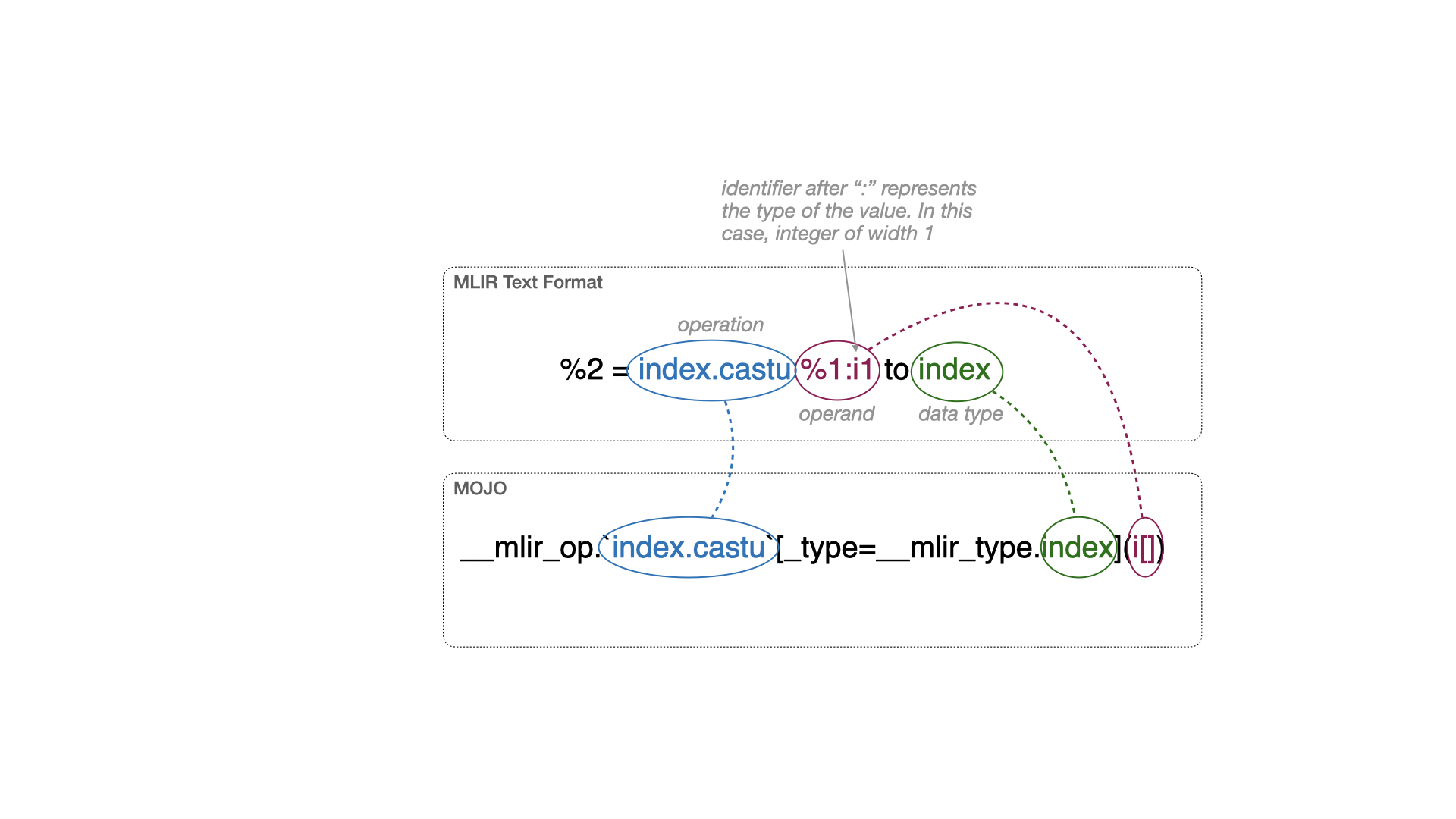19. MLIR interoperability
Mojo supports ahead-of-time compilation. This means that we can run Mojo compiler over our source code to generate the machine code that gets executed on the computer. For a developer it may look as if Mojo reads the source code and directly generates the machine code. However, like many modern compilers, Mojo creates an intermediate representation of our source code before it generates the machine code. This intermediate representation (IR) is a simplified form of the program, which is easier to optimize and reason about. Many compilers use IRs that are custom built for the language supported by the compiler. Mojo does not have its own IR infrastructure, instead it uses Multi-Level Intermediate Representation (MLIR). Unlike other language IRs, MLIR is designed to be extensible and is capable of supporting many programming languages and different types of processors.
The extensibility of MLIR revolves around the ability to define custom dialects and operations within it. Dialects can be thought of as a namespace for a set of operations representing a particular aspect of a program. Operations represent a computation or a level of abstraction. Operations take operands (think of them as arguments) and produces results. Operations also take attributes, which are compile-time values such as constants. Attributes, operands and results have types associated with them. There is much more to MLIR than described here, but it is out of scope of this book.
Though MLIR comes with its own textual representation that is used by the MLIR compiler infrastructure, Mojo exposes MLIR elements through its own syntax.
The following code listing shows an example where MLIR types, attributes and operations are being used.
comptime _0 = __mlir_attr.`0:i1`
comptime _1 = __mlir_attr.`1:i1`
struct BitList(Stringable):
var value: List[__mlir_type.i1]
fn __init__(out self, *values: __mlir_type.i1):
self.value = List[__mlir_type.i1]()
for i in values:
self.value.append(i)
fn __str__(self) -> String:
var s = String("0b")
for i in self.value:
s += String(Int(mlir_value = __mlir_op.`index.castu`[_type=__mlir_type.index](i)))
return s
fn main():
print(String(BitList(_0, _1, _0, _1)))At first, the code listing may look a bit strange. Mojo’s MLIR elements start with __mlir. There are three different elements: __mlir_attr, __mlir_type and __mlir_op.
19.1. __mlir_attr
As the name suggests, __mlir_attr provides ability to define a MLIR attribute (similar to a compile-time constant) along with its data type.
comptime _0 = __mlir_attr.`0:i1`Here we are declaring a comptime with an MLIR constant value 0 of MLIR type i1. If we do not provide i1, it will be assumed to be i64.
19.2. __mlir_type
The __mlir_type provides ability to refer to a given MLIR type.
var value: List[__mlir_type.i1]Here we are declaring a list with contents of type i1.
19.3. __mlir_op
The __mlir_op provides ability to refer to a MLIR operation.
s += String(Int(mlir_value = __mlir_op.`index.castu`[_type=__mlir_type.index](i)))Here we are executing a casting operation from i1 to index type. Since Mojo’s Int type has a constructor that takes in MLIR index type, we are able to instantiate an Int value. Note that MLIR operation has the form <dialect>.<op>. Since MOJO does not allow its identifiers to have . in the name, we have to use backticks `` to be able to use a non-standard identifier.
The following diagram shows roughly how MLIR textual format maps to the Mojo source code representation.
